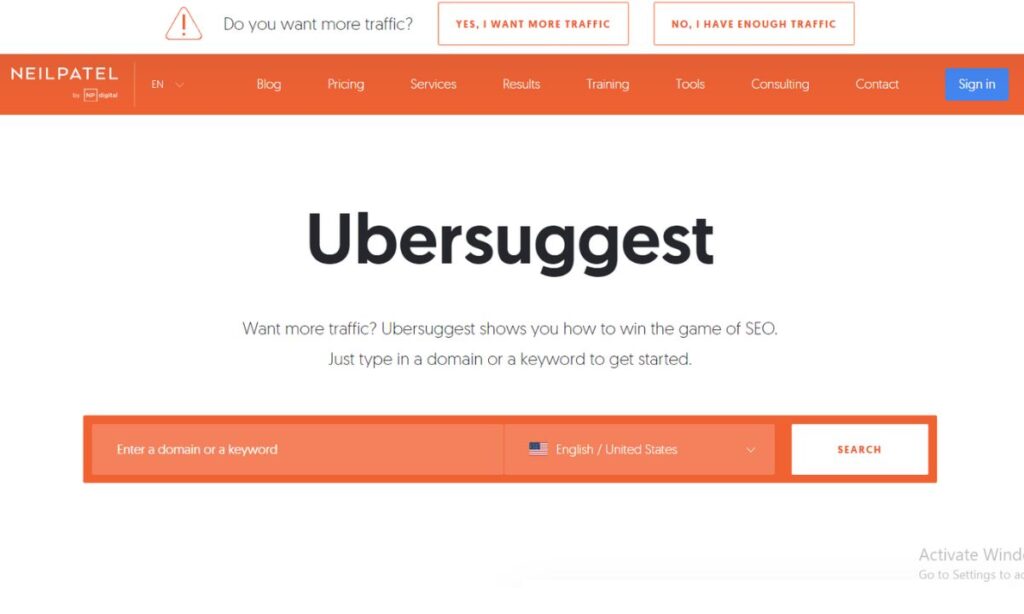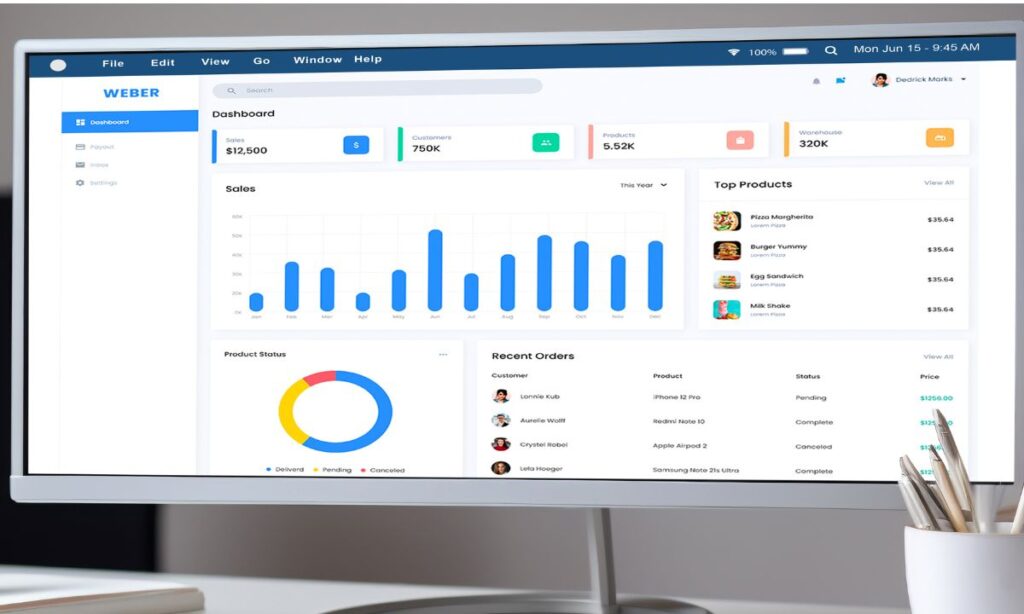If you’ve ever wondered why some websites rank higher on Google than others, even when they seem to offer similar content, the answer often lies in Domain Authority (DA). Domain Authority is a metric that predicts how well a website will likely rank on search engines. But how exactly does it work, and more importantly, how do you increase Domain Authority?
In this ultimate guide, we’ll break down:
- What Domain Authority is
- How Domain Authority is calculated
- What makes a good Domain Authority score
- Practical and actionable strategies to boost your website’s Domain Authority
By the end of this post, you’ll have all the tools and knowledge needed to confidently improve your website’s DA and give it the competitive edge it deserves.
What Is Domain Authority?
Domain Authority (DA) is a scoring system developed by Moz, a leading SEO software provider, to predict how well a website will rank in search engine results. The score ranges from 1 to 100, with higher scores indicating a greater ability to rank.
DA is not a ranking factor used by Google but rather a predictive metric created to help website owners gauge their SEO performance.
Why Is Domain Authority Important?
While DA doesn’t directly impact Google rankings, a higher DA often correlates with better performance on search engines. This is because many factors that improve your DA—like quality backlinks and strong site content—are also key ranking factors for Google.
How Is Domain Authority Calculated?
Domain Authority is calculated using over 40 different factors, including:
- Backlink Profile: The quantity and quality of websites linking back to yours.
- Linking Root Domains: The number of unique websites linking to your site.
- Content Quality: High-quality, relevant, and engaging content signals authority.
- SEO Practices: Proper use of keywords, meta tags, and on-page SEO.
- Site Structure: A well-organized, fast-loading, and mobile-friendly website.
How Does DA Scoring Work?
- Websites start with a DA of 1, and as they gain authority, their score increases.
- Scores in the 20–30 range are common for newer or smaller sites.
- Scores above 50 indicate a strong online presence.
- Reaching the 80–90+ range is typical for large, globally recognized brands.
Note: DA is a relative metric, meaning it compares your website to others. A DA of 40 may be impressive in a niche industry but less so in a competitive one like technology or finance.
What Is a Good Domain Authority Score?
The answer depends on your goals and industry. Generally:
- 1–20: Low authority, typical for new websites.
- 20–40: Moderate authority, achievable for growing sites with some backlinks.
- 40–60: Strong authority, usually reflecting consistent SEO and content efforts.
- 60+: High authority, competitive in most industries.
Focus on improving your DA relative to competitors in your niche rather than chasing an arbitrary number.
How to Increase Domain Authority: Proven Strategies
Improving your Domain Authority isn’t an overnight process, but with consistent effort, it’s achievable. Here’s how:
1. Create High-Quality Content
Your content is the foundation of your website’s authority. To build trust and attract backlinks:
- Write detailed, informative, and engaging articles.
- Use visuals like images, infographics, and videos to enhance content appeal.
- Focus on solving problems for your audience.
For example, a blog post titled “How to Boost Domain Authority in 30 Days” with actionable tips is more likely to attract backlinks than generic content.
2. Build a Strong Backlink Profile
Backlinks are one of the most critical factors in determining DA. Here’s how to build a robust backlink profile:
3. Get Links from High-Authority Websites
- Reach out to reputable sites for guest posting opportunities.
- Write testimonials or reviews for industry leaders in exchange for a backlink.
4. Leverage Internal Linking
Strategically link your own pages to distribute authority across your site.
5. Avoid Spammy Backlinks
Low-quality or spammy links can harm your DA. Regularly audit your backlinks and disavow harmful ones.
6. Optimize On-Page SEO
On-page SEO improves your content’s visibility and boosts authority. Focus on:
- Use target keywords naturally in your titles, headings, and body content.
- Crafting compelling meta descriptions to improve click-through rates.
- Organizing content with subheadings for better readability.
7. Ensure Technical SEO Excellence
A technically sound website helps search engines crawl and index your site effectively. Key areas to address:
- Site Speed: Compress images, use a Content Delivery Network (CDN), and minimize code to improve loading times.
- Mobile-Friendliness: Use responsive design to cater to mobile users.
- Secure Your Site: Switch to HTTPS to protect user data and signal trustworthiness.
8. Engage in Social Media Marketing
Social signals may not directly impact DA, but they drive traffic and visibility, indirectly supporting authority.
- Share your content on platforms like LinkedIn, Twitter, and Facebook.
- Encourage users to share and link back to your articles.
9. Publish Consistently
Regular updates signal to search engines that your site is active and relevant. Aim for a mix of:
- Evergreen content that stays relevant over time.
- Trending topics to capture short-term interest.
10. Focus on Niche Expertise
Becoming a trusted resource in a specific niche can attract backlinks and organic traffic. For example:
- A website dedicated to email marketing strategies is likely to attract links from marketers.
11. Monitor and Measure Your Progress
Use tools like Moz, Ahrefs, or SEMrush to track your Domain Authority and identify growth opportunities.
How to Boost Domain Authority Quickly
While there are no shortcuts, you can accelerate your DA growth by focusing on:
- Collaborating with established brands for backlink opportunities.
- Creating link-worthy content, such as ultimate guides or industry reports.
- Building relationships with influencers in your niche.
Common Myths About Domain Authority
Let’s debunk a few misconceptions:
- DA Directly Affects Rankings
False! DA is a predictive metric, not a Google ranking factor. - A High DA Guarantees Success
Not necessarily. Focus on your target audience and quality content rather than chasing a high DA. - DA Increases Overnight
Improving DA is a gradual process requiring consistent effort.
Conclusion
Domain Authority is a valuable metric for understanding your website’s potential to rank, but it’s not the end-all-be-all of SEO. Focus on creating high-quality content, building strong backlinks, and maintaining excellent technical SEO to naturally increase your DA over time.
By following these actionable strategies, you can confidently answer the question, “How do you increase Domain Authority?” and take your website to the next level.
FAQs
Q1: What is Domain Authority (DA)?
Domain Authority is a score ranging from 1 to 100, developed by Moz, that predicts how well a website is likely to rank on search engines.
Q2: How is Domain Authority calculated?
DA is calculated using over 40 factors, including backlink quality, the number of linking root domains, content relevance, and technical SEO performance.
Q3: What is a good Domain Authority score?
A “good” DA score depends on your niche. Generally, 40–60 is considered strong, while 60+ reflects high authority.
Q4: How do you increase Domain Authority?
You can increase DA by building high-quality backlinks, creating valuable content, optimizing on-page and technical SEO, and maintaining a user-friendly website.
Q5: How do you increase Domain Authority quickly?
To increase Domain Authority quickly, focus on acquiring high-quality backlinks from reputable websites, creating link-worthy content like guides or infographics, and optimizing your technical SEO. While progress takes time, these strategies can accelerate growth.
Q6: Does Domain Authority directly affect Google rankings?
No, DA is not a Google ranking factor. It’s a predictive metric by Moz that correlates with factors important for ranking on search engines.
Q7: How often does Domain Authority update?
Moz updates Domain Authority periodically. Changes depend on new backlinks, lost links, and adjustments in your website’s overall performance.
Q8: What is the difference between Domain Authority (DA) and Page Authority (PA)?
DA measures the ranking potential of an entire domain, while PA evaluates the ranking strength of a specific page on that domain.
Q9: Can low Domain Authority sites still rank high on Google?
Yes! A low DA site with high-quality, relevant content and proper SEO practices can outrank higher DA sites in specific niches.
Q10: How do backlinks influence Domain Authority?
High-quality backlinks from reputable sites signal authority to search engines, which can increase your DA over time.
Welcome to Digital Profit Track, sharing powerful tips on digital marketing, freelancing, and online earning to help you achieve financial freedom.
Contact me at: team@digitalwsf.com.




